Leadership and Management for Service Industries Report - HNC/HND
VerifiedAdded on 2023/01/23
|13
|478
|21
Report
AI Summary
This report delves into the application of classical management theories within the service industry, using Wa-Pila Hotels as a case study. It examines Weber's theory of bureaucracy and Taylor's scientific management, highlighting how they can improve operational quality and employee motivation. The report further explores the role of leaders in enhancing morale and creating strategies, alongside various leadership and management styles such as autocratic, democratic, participative, and consultative approaches. It emphasizes the importance of effective leadership and management in achieving organizational goals, concluding that the right leadership and management style is crucial for the service sector's success. References are provided for further reading.
1 out of 13

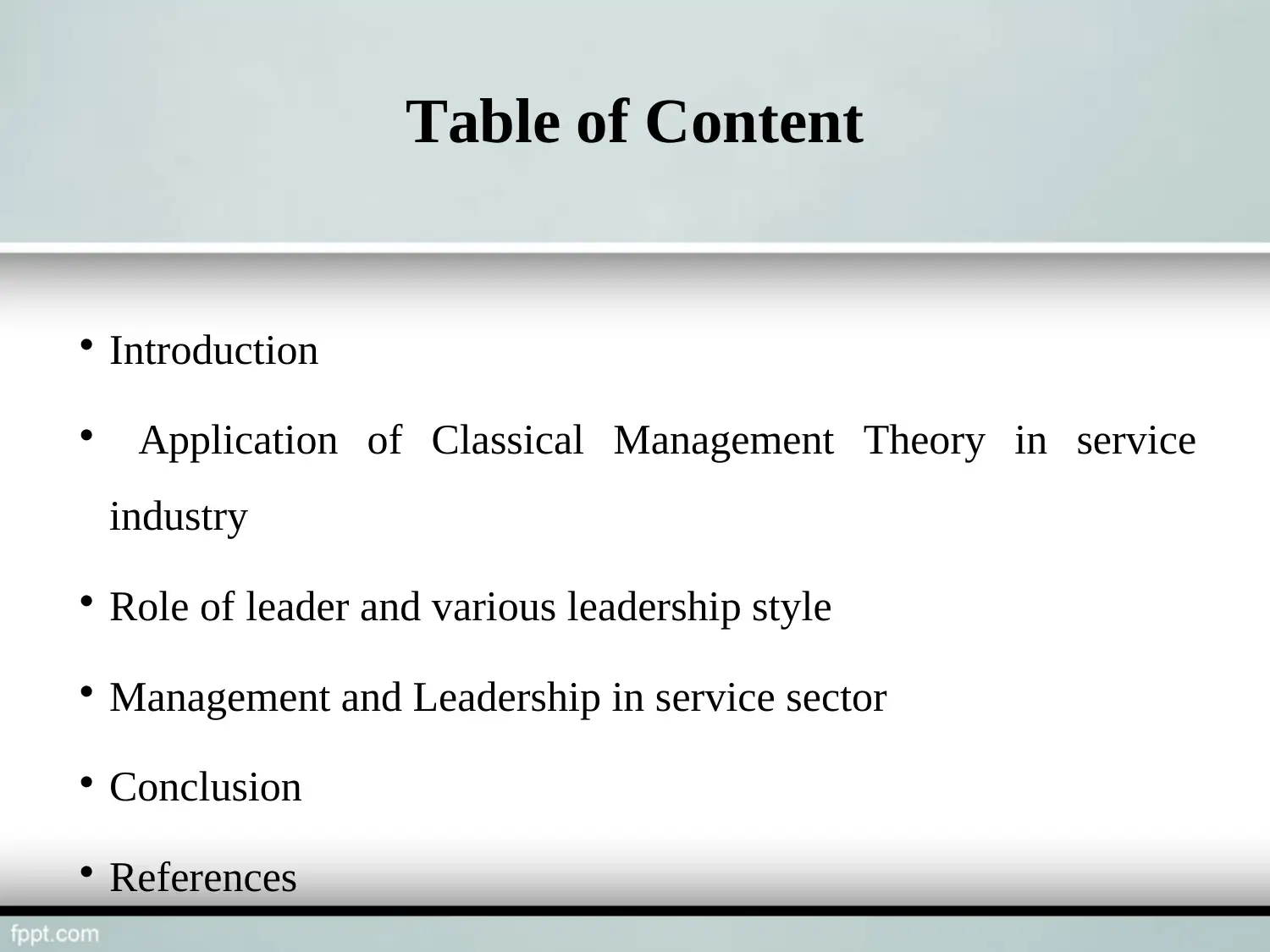
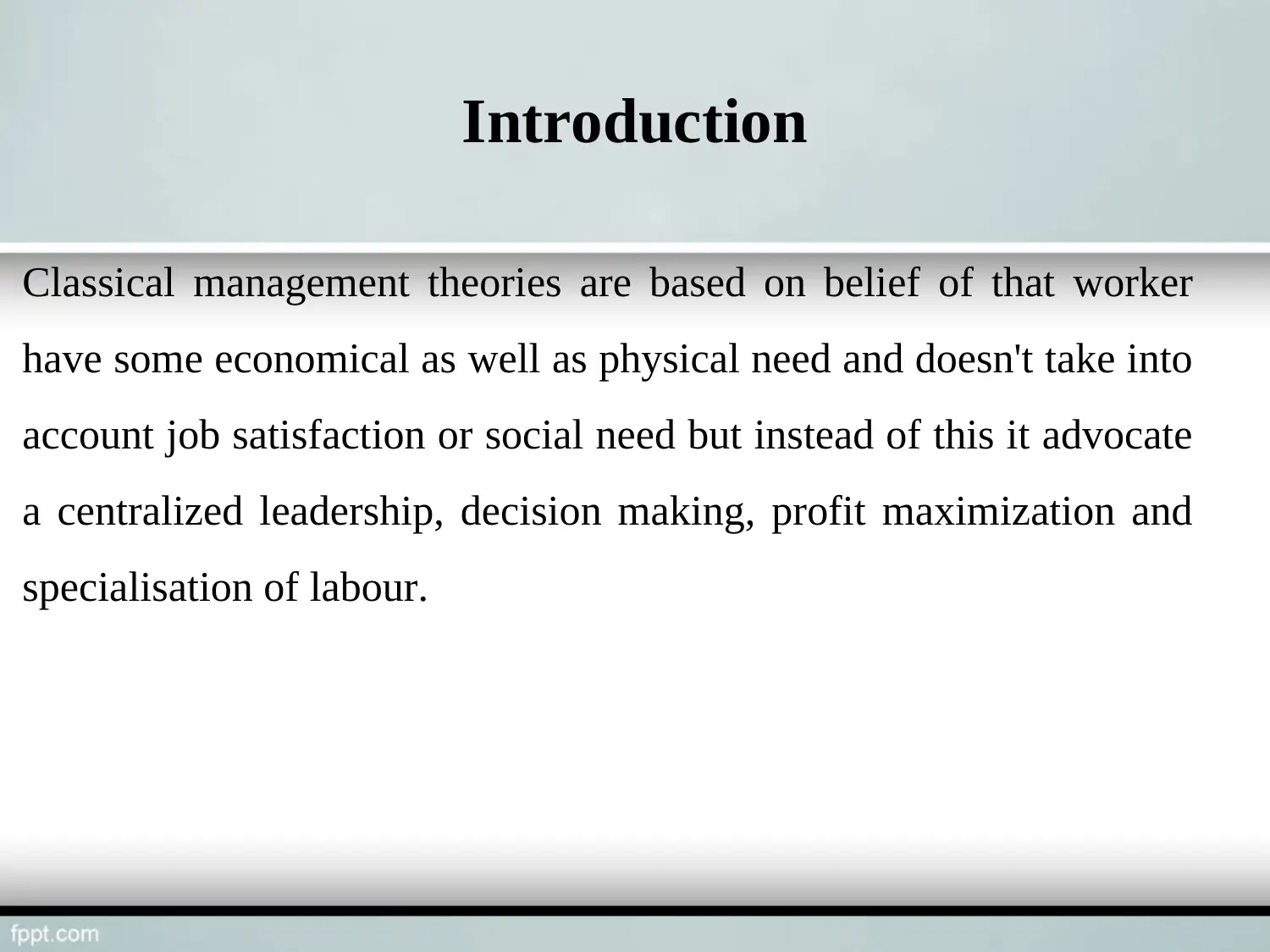

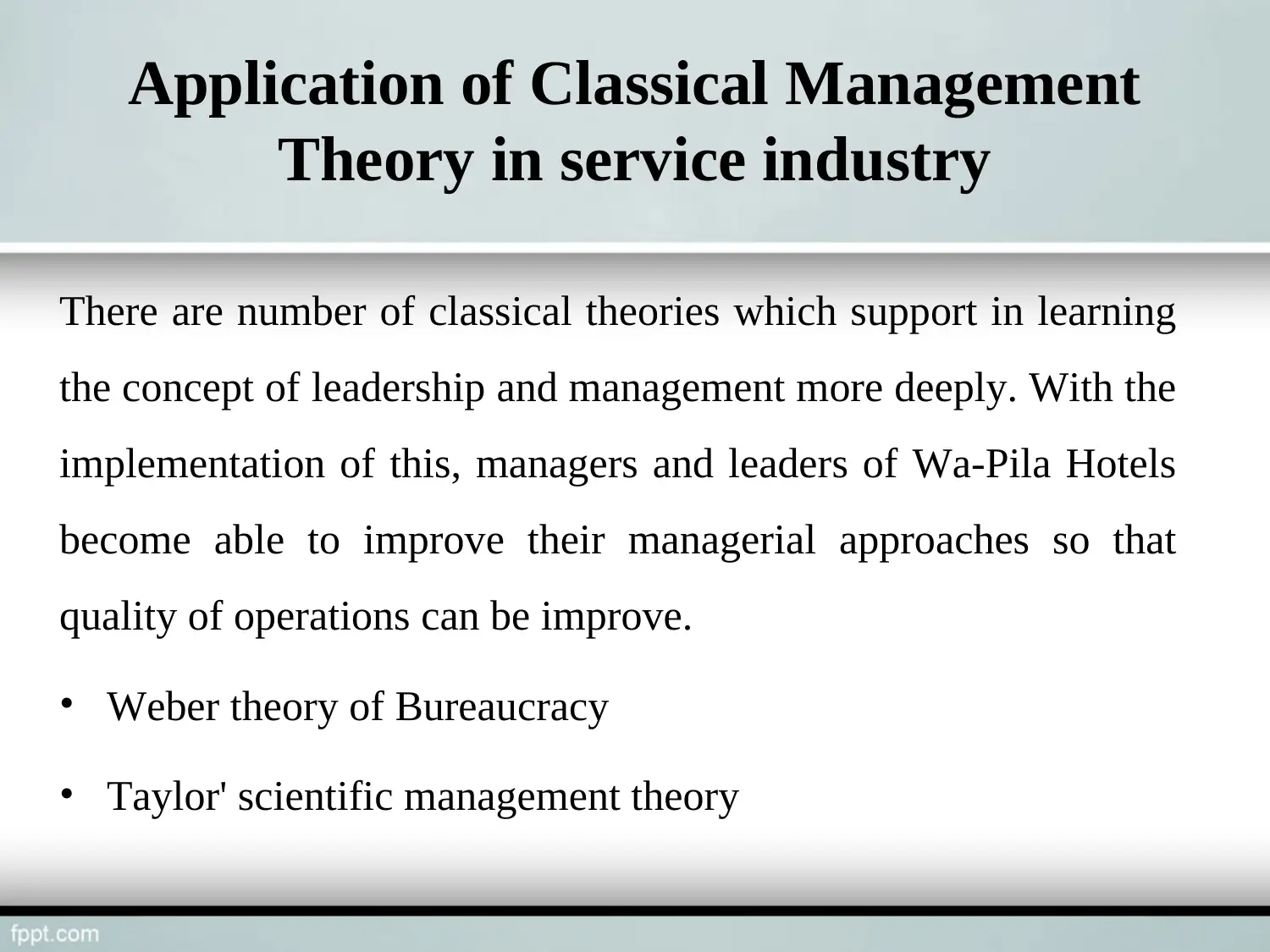
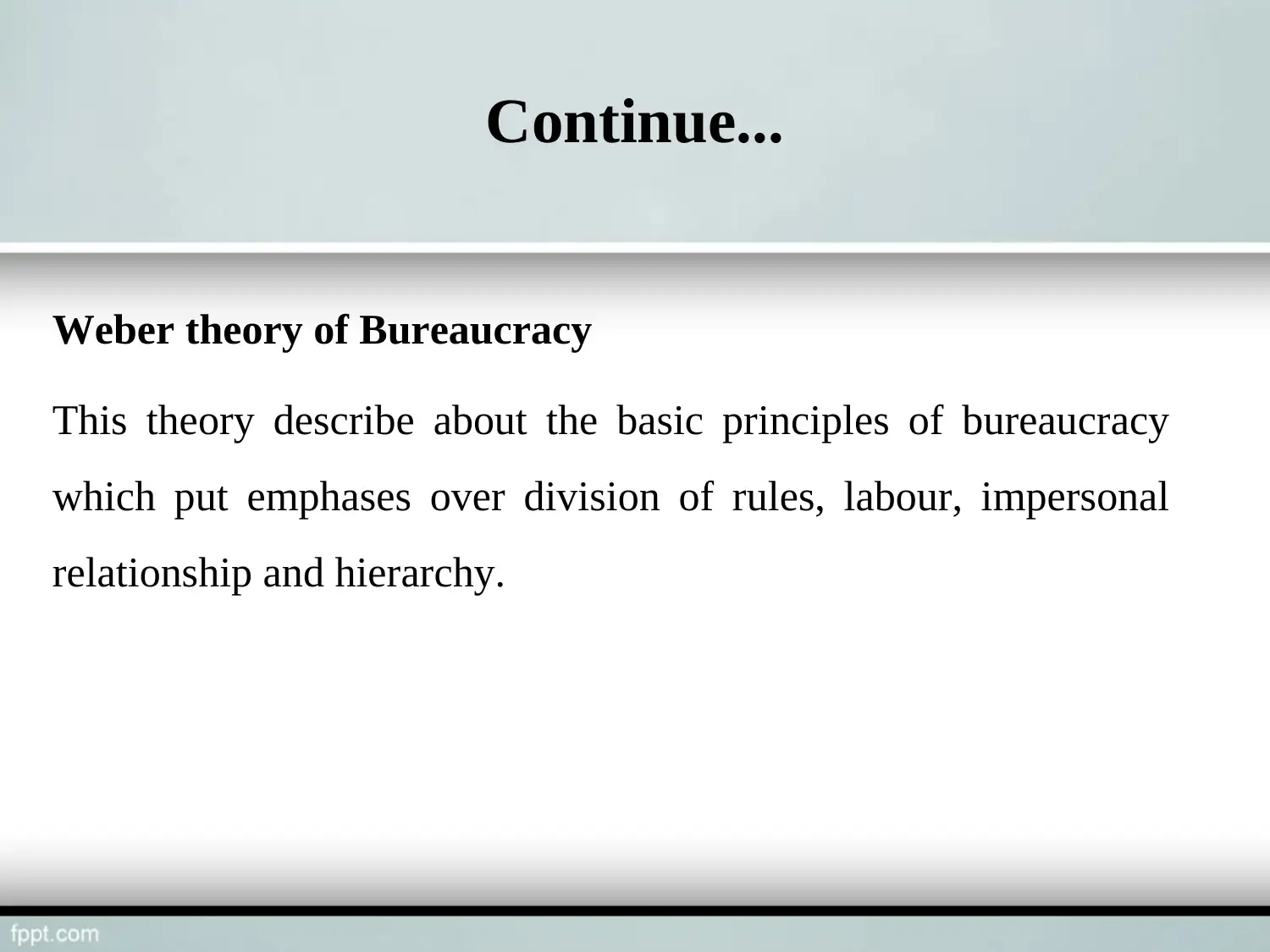
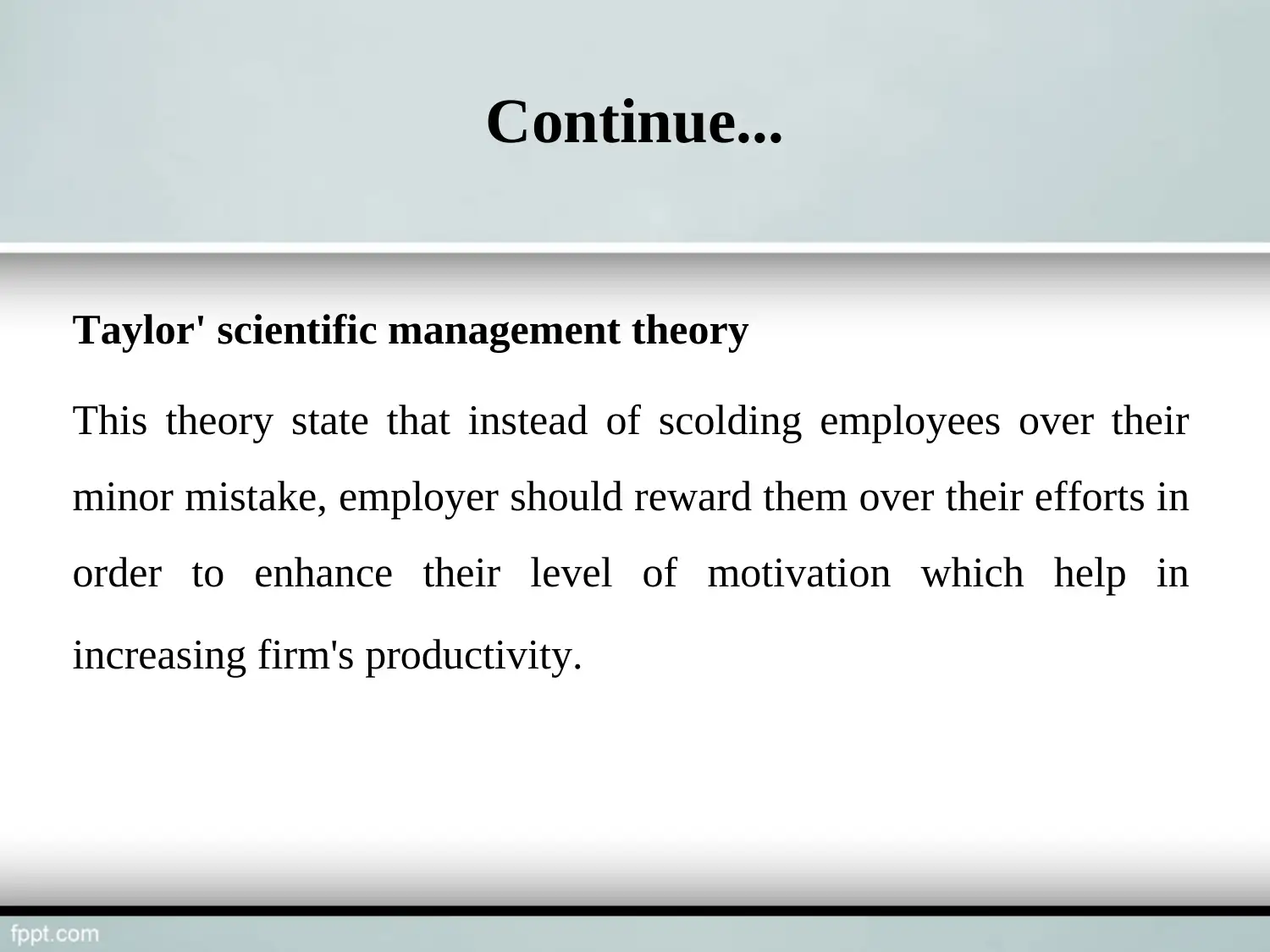
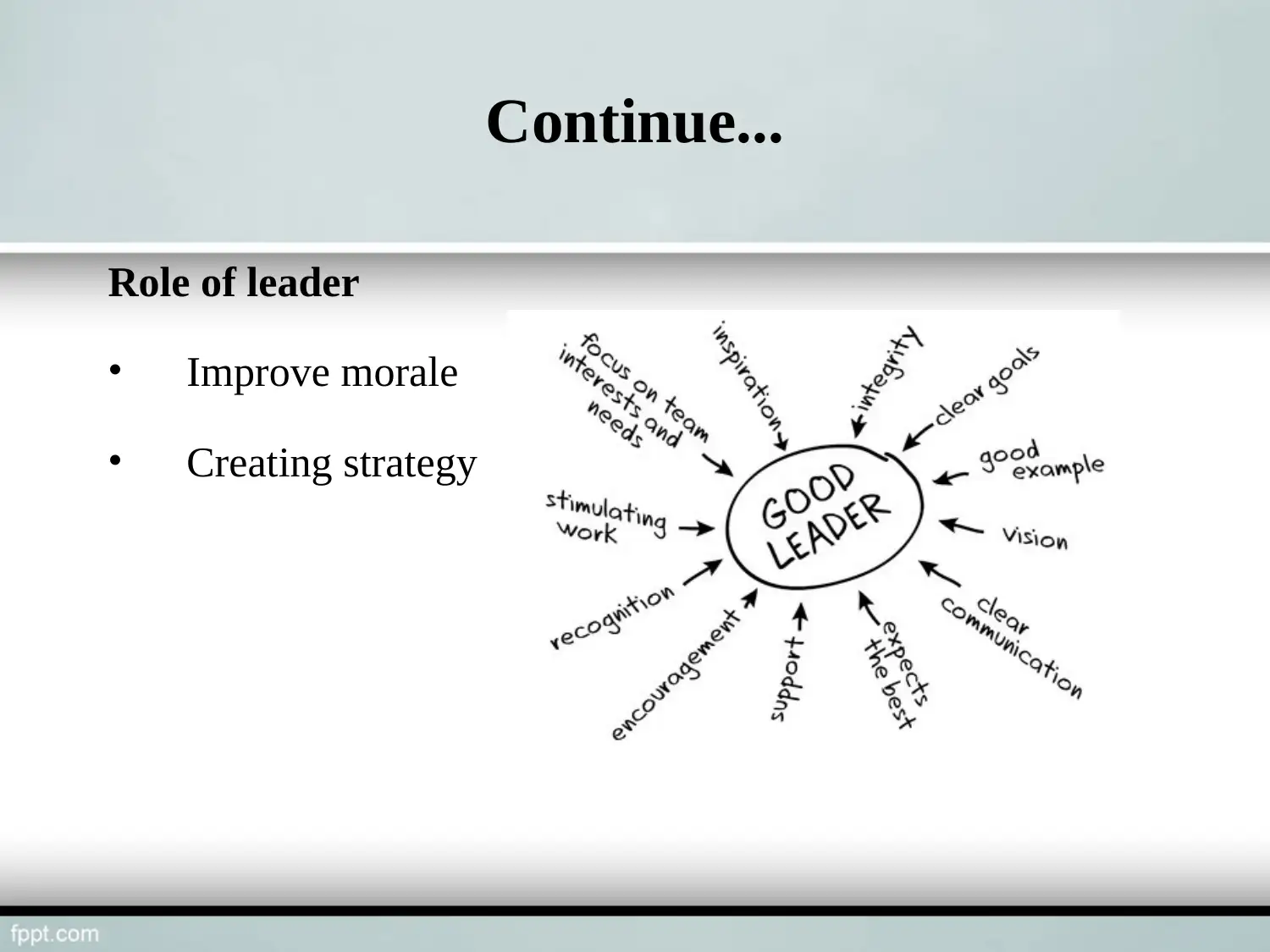
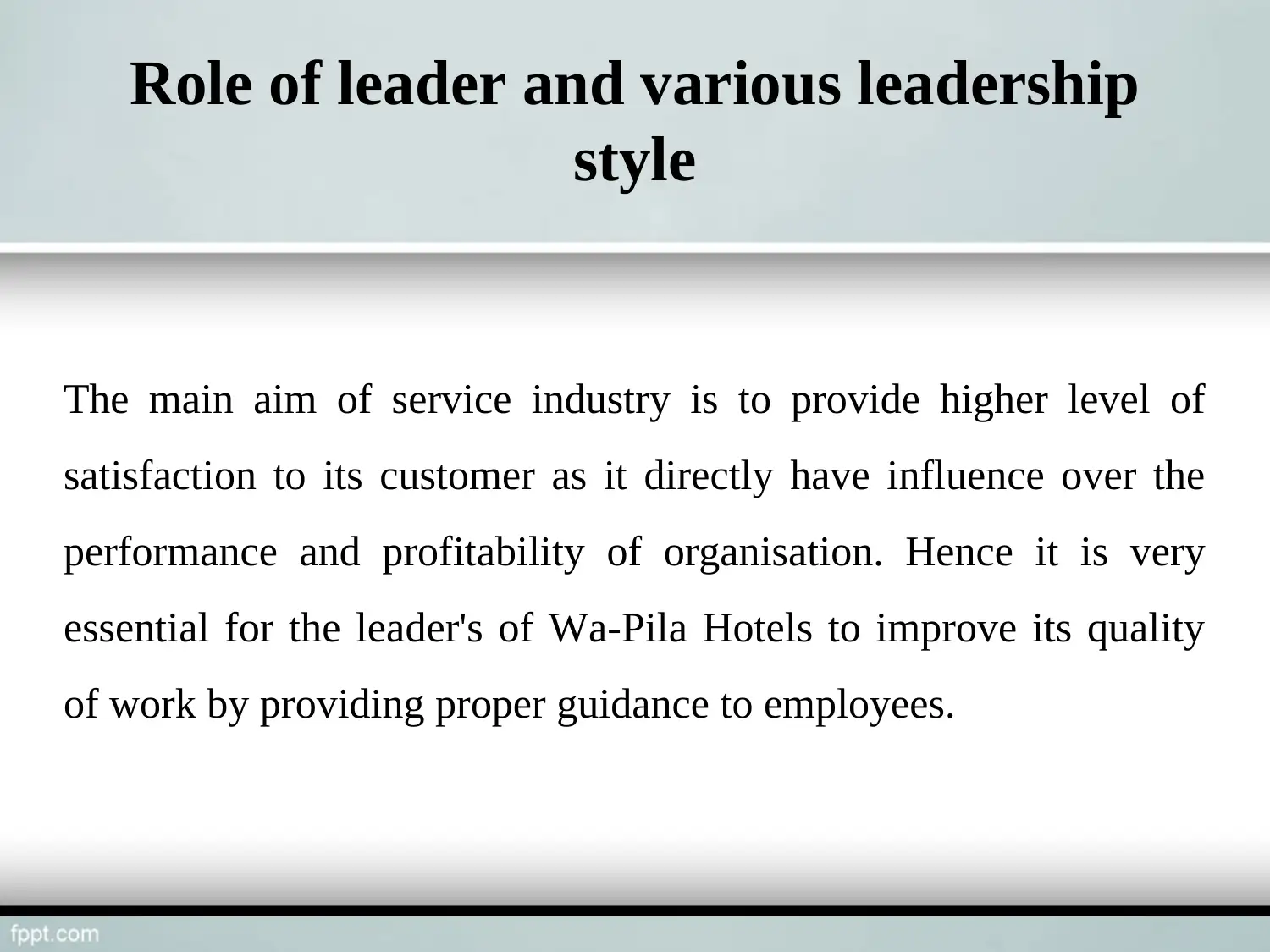
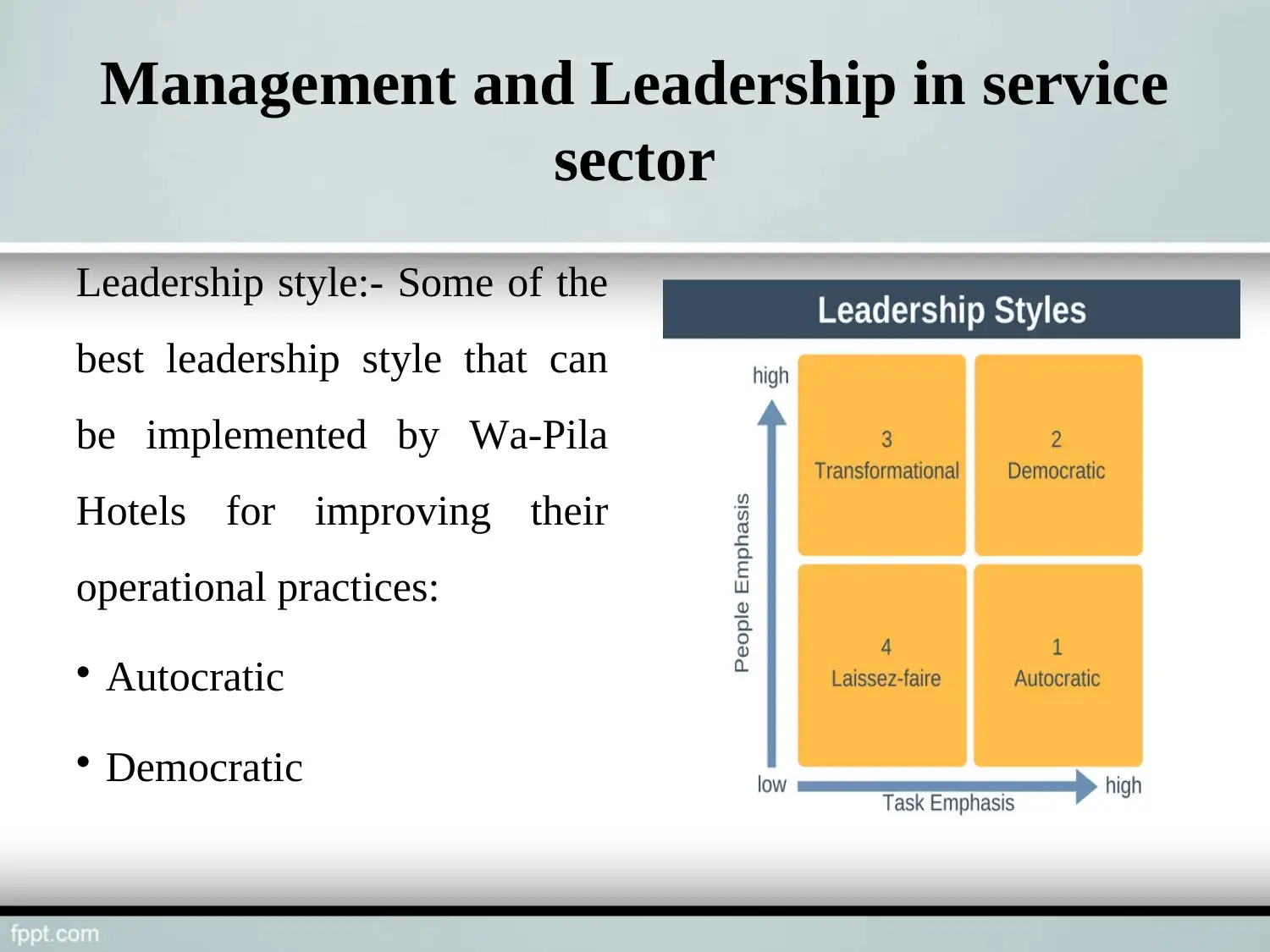
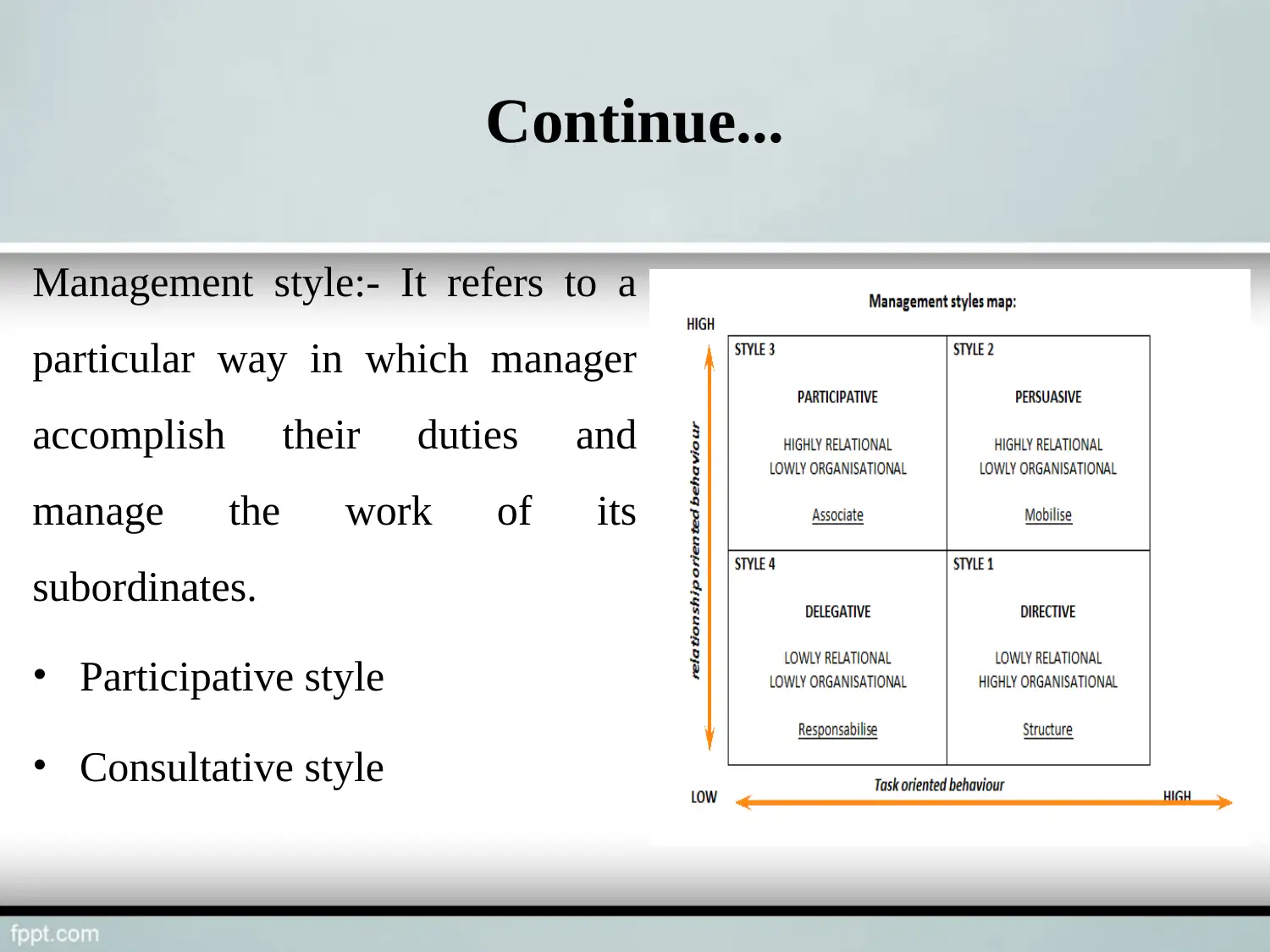
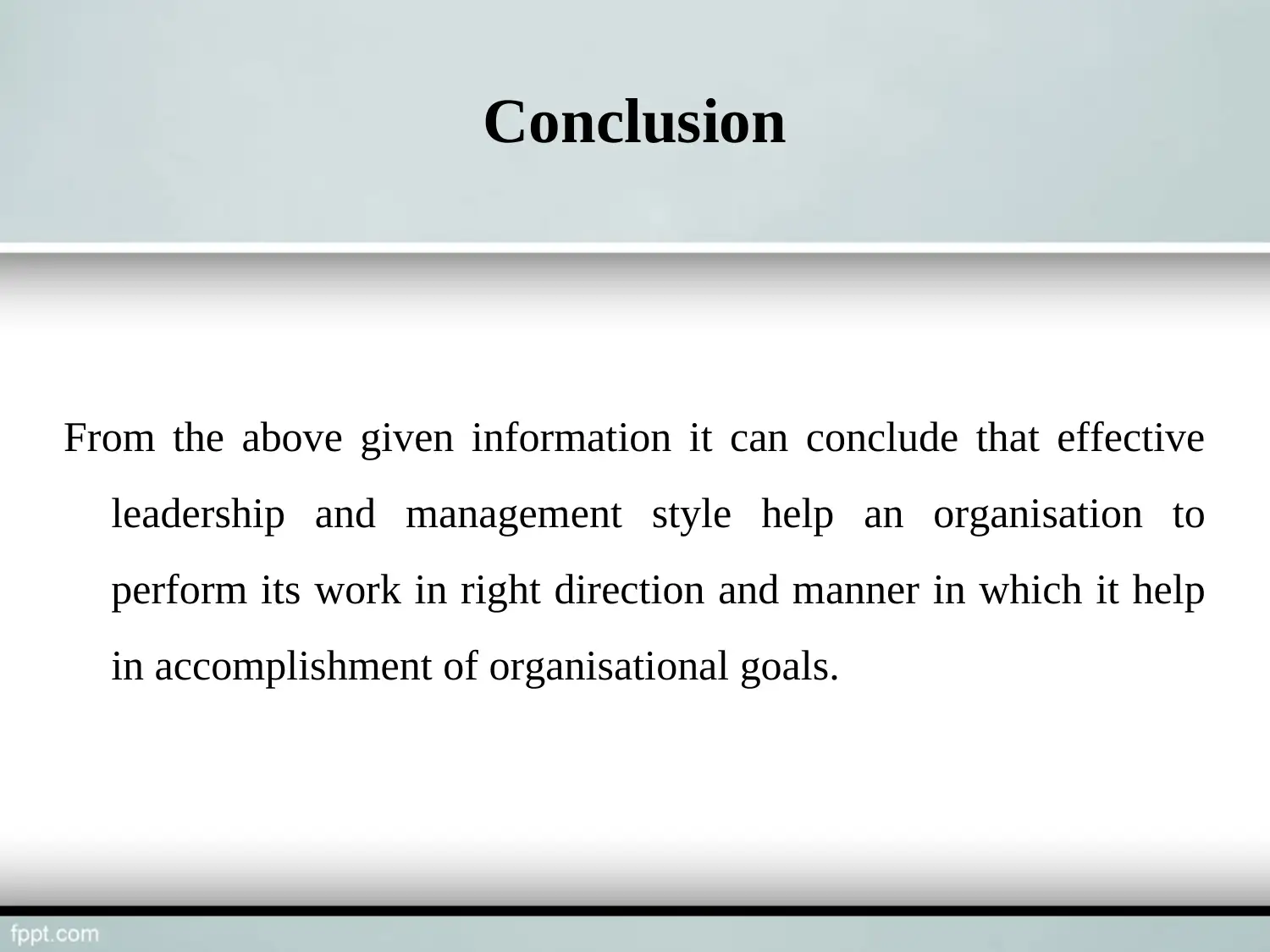
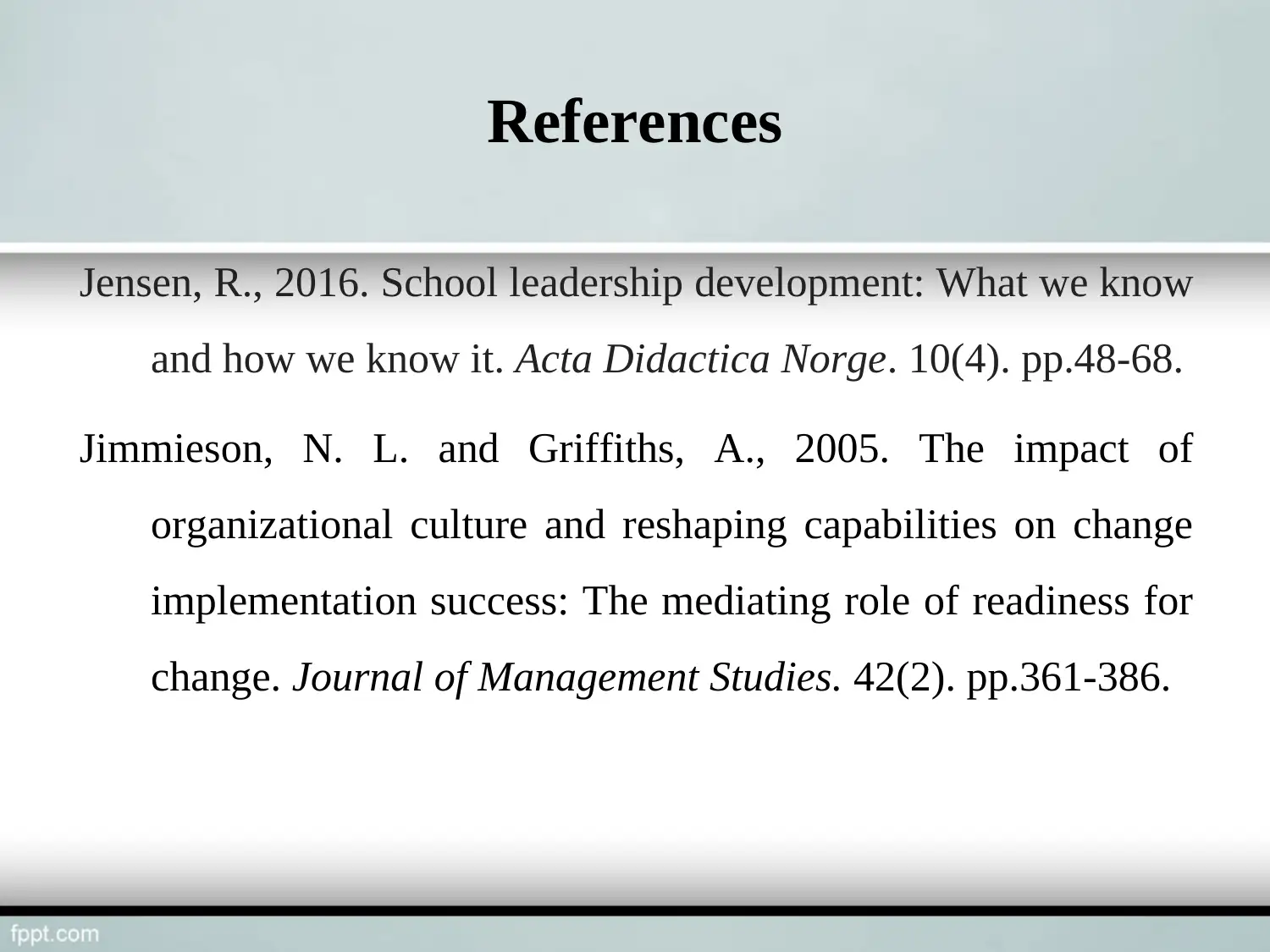






![[object Object]](/_next/static/media/star-bottom.7253800d.svg)